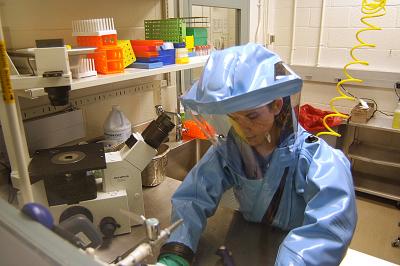Now that Ebola is officially in the US on an uncontrolled basis, the two questions on everyone’s lips are i) who will get sick next and ii) how bad could it get?
We don’t know the answer to question #1 just yet, but when it comes to the second one, a press release three weeks ago from Lakeland Industries, a manufacturer and seller of a “comprehensive line of safety garments and accessories for the industrial protective clothing market” may provide some insight into just how bad the US State Department thinks it may get. Because when the US government buys 160,000 hazmat suits specifically designed against Ebola, just ahead of the worst Ebola epidemic in history making US landfall, one wonders: what do they know the we don’t?
From Lakeland Industries:
Lakeland Industries, Inc. (LAKE), a leading global manufacturer of industrial protective clothing for industry, municipalities, healthcare and to first responders on the federal, state and local levels, today announced the global availability of its protective apparel for use in handling the Ebola virus. In response to the increasing demand for specialty protective suits to be worm by healthcare workers and others being exposed to Ebola, Lakeland is increasing its manufacturing capacity for these garments and includes proprietary processes for specialized seam sealing, a far superior technology for protecting against viral hazards than non-sealed products.
“Lakeland stands ready to join the fight against the spread of Ebola,” said Christopher J. Ryan, President and Chief Executive Officer of Lakeland Industries. “We understand the difficulty of getting appropriate products through a procurement system that in times of crisis favors availability over specification, and we hope our added capacity will help alleviate that problem. With the U.S. State Department alone putting out a bid for 160,000 suits, we encourage all protective apparel companies to increase their manufacturing capacity for sealed seam garments so that our industry can do its part in addressing this threat to global health.
(Read the rest of the story here…)
